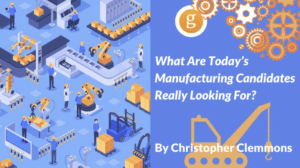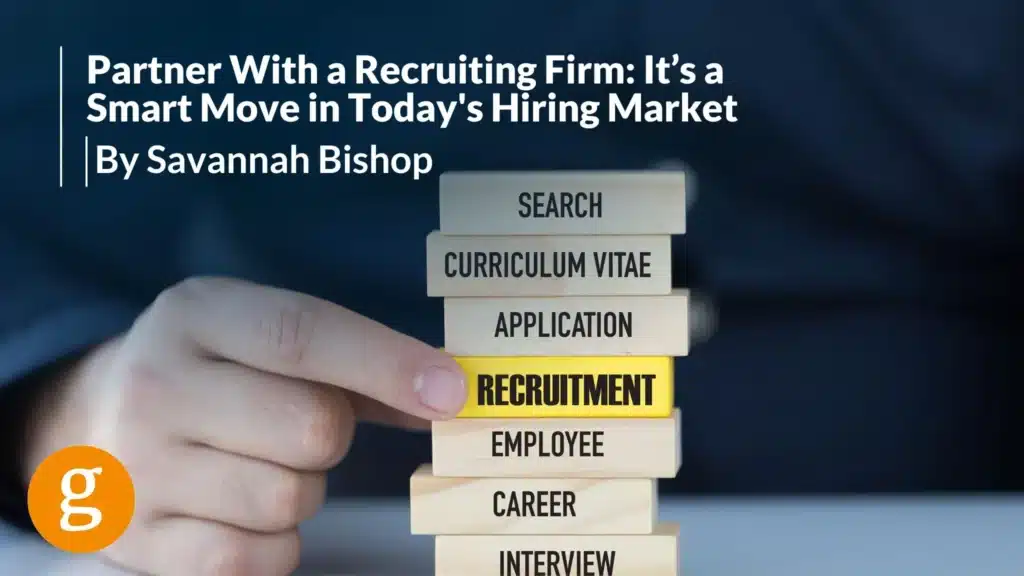What Are Today’s Manufacturing Candidates Really Looking For?
Chris Clemmons | Hiring Advice, Industry News, Leadership, Manufacturing & Engineering, Opinion | August 18, 2022

Every day, I hear manufacturing job candidates ask this question of employers and prospective employers:
“Do you trust me?”
Now, job seekers typically don’t use those words, but that’s what they mean when they make increasingly common statements like these in response to job postings and interview questions:
“Work-life balance is most important to me.”
“Money isn’t as important as being able to have a flexible schedule.”
“Being able to work at home and when I am most productive is huge for me.”
The pandemic gave companies no choice but to trust their employees – and people ate it up. “It’s kind of cool not to have to commute an hour each way or have to put on pants for that 8:00 a.m. Zoom call. Oh, and I can still do my job as well or better than I did before. I’m in!”
Today, the trust factor is big in talent acquisition and retention
We have reached an interesting point where companies aren’t required to let their people work remotely because the pandemic’s impact on society and the workforce has lessened. I’m hopeful that in today’s executive and board meetings, members of management are asking themselves that same question – do we trust our employees – and if not, why not?
In his book, “The Speed of Trust,” author Stephen Covey says, “Trust is the highest form of human motivation.” People who are trusted perform better because they are motivated and feel a responsibility to deliver on that trust.
Workers are now demanding to be trusted. Multiple studies validate that more and more employees and job seekers value flexibility and work-life balance over salary and total compensation. They know they can do the job just as well at home or away from the office and have proved it for more than two years with automation as the great enabler. They want to know why the work model needs to change when so many companies not only survived but thrived during the extended period when millions of employees worked from home.
What is the outlook for today’s manufacturing companies?
Companies that don’t embrace the shift in thinking to a more balanced view of work and life may be pushing their most skilled and talented workers out the door. According to one study from Stanford University, employees with the ability to do their jobs from home typically are highly skilled and now value fewer, shorter commutes, and quiet time, and have reprioritized where they want to live – even if it means looking for a new job.
While 50% of manufacturing employees don’t have an option (they must go to an office or factory or lab to do their work), the other 50% now realize they can have their cake and eat it, too, and are willing to leave companies and roles to find companies that will accommodate their desires.
Companies that don’t trust people to be productive while working remotely will likely see a continual loss of current employees and access to top talent until they realize what is important to a large and growing segment of the workforce.
A happy medium is taking shape
A recent survey conducted by AT&T and Dubber Corporation, “The State of the Industry: Future of Work,” reveals insights from hundreds of executives. According to the respondents, hybrid work models will be the foremost working model by 2024, with 56% of work performed offsite. “There’s been a non-reversible shift in the way business is done thanks to the constraints of COVID-19,” says Alicia Dietsch, senior vice president of AT&T Business Marketing.
What also appears irreversible is the workforce’s expectation of trust from employers to continue remote or hybrid work status. This is a welcome expectation for companies willing to grant it, and their retention rates are stronger for it. Remote and hybrid work models are among the top incentives today for attracting and keeping high-quality manufacturing employees with the right skills and quickly filling skills gaps.
Flexibility has become part of the employer brand, an attribute that pays off in both the recruitment and hiring process.
Share This Article






































